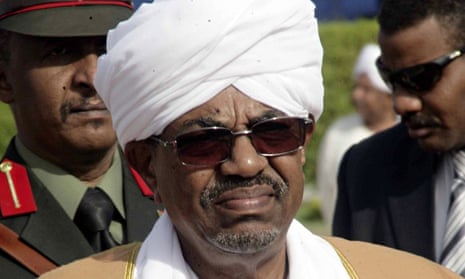Government soldiers in Sudan are using sexual violence, including the gang-rape of teenage girls, as a weapon of war against southern rebels, a watchdog has claimed.
Refugees from Blue Nile state described a pattern of abuses including rapes, torture and the beating to death of men in custody, Human Rights Watch said.
Daniel Bekele, the group’s Africa director, said: “The number of rapes reported to us, often in harrowing detail, suggests that sexual violence is part of the government’s counter-insurgency strategy. The scale of reported abuses points to the urgent need for an international investigation in both rebel- and government-controlled areas.”
President Omar al-Bashir’s government has been battling an insurgency in the southern Blue Nile and South Kordofan states since 2011, waged mostly by former civil war fighters who were left in Sudan after South Sudan gained independence that year.
“Entire communities are trapped in camp-like conditions behind government lines, terrorised by government forces. In addition to indiscriminate bombing, Sudanese government forces are getting away with abusive and illegal tactics under a guise of counter-insurgency, including rape, arbitrary detentions and killings,” Bekele said.
Last month investigators from Human Rights Watch interviewed 42 refugees who had fled across the border into South Sudan, as well as six people displaced within Blue Nile. The vast majority were Ingessana, the ethnic group of Malik Agar, the commander of the Sudan People’s Liberation Army-North (SPLA-North), the main rebel group fighting the government.
Five said they had been raped by members of government security forces or armed militia, and 12 said relatives had been raped. Some women said security forces detained them, then took them away and raped them. Refugees also reported being detained and subjected to ill-treatment and torture. Most of the reported incidents had taken place within the past year.
A 14-year-old girl, Amira, told how soldiers had taken her, her sister and mother to a military barracks and raped them, Human Rights Watch said.
A 20-year-old woman, Hawa, spent 10 days in hospital after soldiers gang-raped her in an attack this year that left her unconscious. “They raped me one after the other and they beat me,” she said. “I tried to resist and they pulled me to the ground and [when they were finished] they left me.”
Ramadan, 27, claimed that soldiers and militia beat his uncle and stole money and a phone while raiding their family compound. He took his aunt to hospital. “The soldiers took turns raping her, one after the other. We went to the police station to report, but instead of taking the information they wanted to beat us. They said that if we tried to come back and continued saying this, they would beat us.”
Many of the refugees said they or their relatives were beaten or detained, including when they tried to leave government-controlled towns or villages. Some of the former detainees said government authorities tried to force them to join the Sudanese army, and several described severe beatings and torture by security forces. One 21-year-old farmer who was detained with 13 other men said two of them died from beatings in custody.
Human Rights Watch called on the UN security council to launch an inquiry and impose an arms embargo against the government.
Its report was challenged by the Sudanese embassy in the UK. A spokesman told Reuters: “We have every reason to question the veracity of this. Those sympathetic to the rebels will of course want to discredit the Sudanese government.”
Bashir faces another insurgency in the western region of Darfur, where rebels have been fighting the government since 2003. Last month a local news website reported that government troops had raped 200 women and girls in a village in the region, a charge that Khartoum has repeatedly denied.
The government has called on a joint UN-African Union peacekeeping mission to leave Darfur, but this week the mission brushed off the suggestion. Its head, Herve Ladsous, told Reuters: “It won’t happen tomorrow and not while we continue to see so much suffering. This year alone we’ve seen a further 430,000 displaced, which is a clear indication that the situation in Darfur is not good. What we’re seeing is fighting between unidentified militias and people are being killed, women are being raped.”
Bashir made a speech claiming victory over the weekend after the international criminal court shelved an inquiry into war crimes in Darfur due to lack of support from the UN security council. An arrest warrant for the president remains in place, but Jibril Bilal, of Darfur’s Justice and Equality Movement, said: “The [ICC] decision will lead to a further deterioration in the humanitarian situation in Darfur, Blue Nile and South Kordofan as the military confrontation escalates.”
In the capital, Khartorum, fears are growing over the fate of a prominent human rights lawyer, Amin Mekki Medani, who was arrested more than a week ago by the National Intelligence and Security Service (Niss).
His family have heard he is not eating well because the food provided is not suitable for his diabetes. His daughter, Sara, said: “We still don’t know his whereabouts and we have requested a family visit, which has been rejected by the Niss.”
